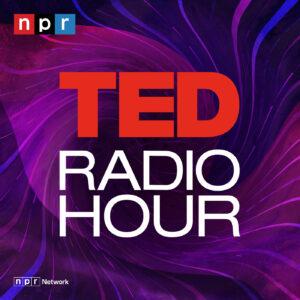Intro
In this episode of “The Jordan B. Peterson Podcast,” Dr. Jordan B. Peterson engages in a fascinating conversation about God with Dr. John Lennox. They explore the intersection of science, religion, and philosophy, discussing the legacy of the biblical worldview, the concept of the logos, the importance of truth, and the dangers of self-deification. Join them as they delve into deep questions about the nature of reality, morality, and the pursuit of knowledge.
Main Takeaways
The Legacy of the Biblical Worldview
- The split between science and religion is not as large as previously thought.
- Universities developed from the monastic tradition and were predicated on the Christian tradition.
- Believing in the intelligibility of the world, the human logos, and the beneficial consequences of acquiring knowledge are axioms of faith that underpin the scientific enterprise.
- Modern science is a legacy of the biblical worldview, and the doctrine of creation allowed people to do science.
- Science and the biblical worldview sit comfortably together, but science and atheism do not.
The Logos and the Universe
- Greek and Judeo-Christian thought share the idea of an intrinsic comprehensibility in the cosmos and the importance of honest communication and investigation.
- Richard Dawkins’ idea that an organism has to be an accurate microcosm of the environment in order to survive.
- The medieval Christian idea that the human soul reflects the structure of reality itself.
- The cosmos can be best conceptualized as something that can be entered into a relationship with personality to personality.
- The logos as a personality can investigate the logos of the universe, and those things dovetail.
The Rational Intelligibility of the Universe
- The cornerstone of our civilization is the idea that human beings are made in the image of God.
- The legacy of the biblical worldview is the rational intelligibility of the universe, which is the foundation of modern science.
- The universe bears the imprint of a creator, which is the rationale behind the intelligibility of the universe.
- The universe is a product of a rational, intelligent, and personal creator.
- The anchor point is that the logos became human, and we beheld his glory.
The Pursuit of Truth and Ethical Considerations in Science
- The pursuit of truth is crucial for science to have meaning and purpose.
- Investigating the complexities of material reality is good and necessary.
- The idea of the logos requires exploration, investigation, and communication about everything as deeply as possible.
- Accepting all the terrible catastrophes of life is the manner in which life’s abundance could reveal itself.
- Truth exists and is a person, and the pursuit of it is a commitment to the revealed order that is good.
- A scientist’s conduct is oriented around ethical propositions.
- Generosity with ideas is part of the scientific ethos.
- Statistical analysis is saturated with ethical decisions.
- The ethical dimension of science raises deep questions about reference points and norms.
- Scientific truth is the conjunction of the intrinsic logic of the objective world and the truthful, penetrating psyche of the human observer.
Summary
Science, Religion, and the Legacy of the Biblical Worldview
Dr. Peterson and Dr. Lennox explore the relationship between science and religion, highlighting the shared roots of universities in the Christian tradition. They discuss how the belief in the intelligibility of the world and the pursuit of knowledge are foundational to both science and faith. The biblical worldview provided the framework for the development of modern science, emphasizing the rationality and orderliness of the universe.
The Logos and the Universe
The concept of the logos, present in both Greek and Judeo-Christian thought, is examined. Dr. Lennox explains how the idea of an intrinsic comprehensibility in the cosmos and the importance of honest communication and investigation are shared between these traditions. They discuss Richard Dawkins’ idea that organisms must accurately reflect their environment for survival and the medieval Christian belief that the human soul reflects the structure of reality itself.
The Rational Intelligibility of the Universe
Dr. Peterson and Dr. Lennox delve into the notion that the rational intelligibility of the universe is a cornerstone of our civilization. They explore how the legacy of the biblical worldview provides a rationale for the intelligibility of the universe, suggesting a creator who imbued it with order and purpose. The discussion centers on the idea that the logos became human in the form of Jesus Christ, revealing the ultimate truth and glory.
The Pursuit of Truth and Ethical Considerations in Science
The pursuit of truth and the ethical dimensions of scientific inquiry are examined. Dr. Peterson and Dr. Lennox emphasize the importance of investigating the complexities of material reality and the idea that truth exists as a person. They discuss how ethical considerations play a role in scientific conduct, including the generosity of sharing ideas and the ethical decisions involved in statistical analysis. The pursuit of truth is seen as a commitment to the revealed order that is good.
Conclusion
Join Dr. Peterson and Dr. Lennox as they navigate the intersection of science, religion, and philosophy in this thought-provoking conversation about God. They explore the legacy of the biblical worldview, the concept of the logos, the pursuit of truth, and the ethical considerations in scientific inquiry. Through their engaging dialogue, they shed light on the interconnectedness of faith, reason, and the pursuit of knowledge.
